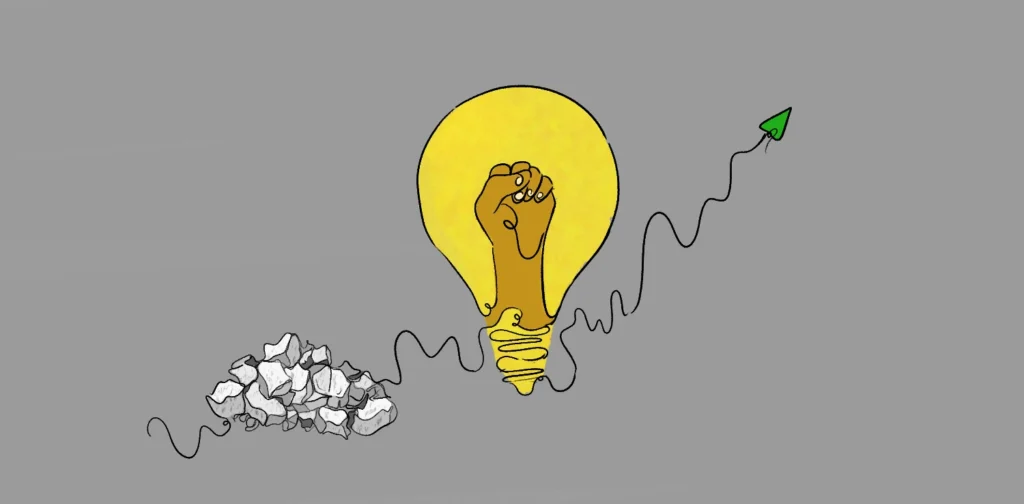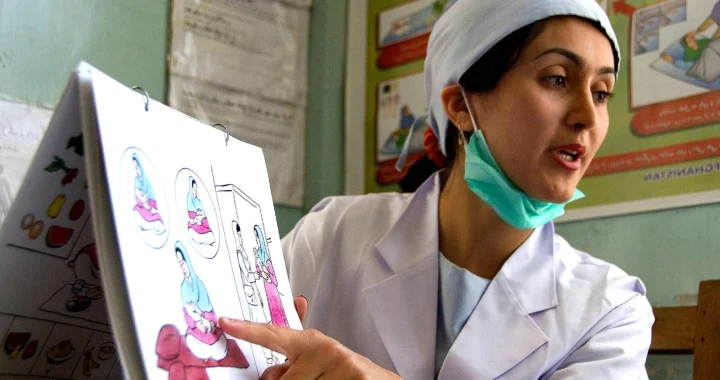How Critical Minerals Can Power a Just Energy Transition in the Global South

Illustration: Irhan Prabasukma.
The global shift toward clean energy is not just changing how we power our world—it might be changing who holds power. The metals and critical minerals that make renewable technologies possible, such as lithium, nickel, copper, graphite and rare earths, are becoming the backbone of a new global economy. But behind the promise of clean energy transition lies a question of justice: who benefits from this new mineral rush, and who bears its costs?
Changing the Narrative
For centuries, countries across the Global South have been supplying raw materials while enjoying little of their value. Instead, the Global North has created an exploitative system that benefits themselves first and foremost. This system has left the supplier countries to bear the damage on their people and the planet.
Thus, from Latin America’s copper to Africa’s cobalt and Asia’s nickel, resource wealth rarely translates to sustainable development and sovereignty. The global decarbonization agenda is no different. It has the risk of benefitting only the few and wreaking havoc on the rest of the people and the natural world.
However, at this stage, the clean energy transition offers a historic opportunity to change that narrative—if it is managed with foresight, cooperation, and sustainability.
Indonesia and Brazil illustrate both the challenge and the potential. Indonesia is the world’s top producer of nickel, essential for electric-vehicle batteries. The country also has banned raw ore exports to promote domestic processing. Meanwhile, Brazil holds 95% of the world’s niobium reserves as well as vast deposits of lithium and graphite. Moreover, Brazil produces most of its minerals using renewable power. Both countries are trying to leverage their resources to build industries at home rather than simply exporting raw critical minerals abroad.
Harm Reduction in Critical Minerals Extraction
The extraction of critical minerals is a high-risk activity for people and the environment. For a just energy transition, transparency and inclusion are essential. Mining must respect ecosystems and local communities.
To start, avoiding Protected Areas and involving impacted communities is crucial. Consultation and FPIC (Free, Prior, and Informed Consent) from Indigenous peoples and local communities nearby is the bare minimum. Then, profit-sharing models that allocate a portion of revenues to education, infrastructure, and environmental restoration can help. But beyond money, all mining projects should include concrete action plans to reduce harm during the process and restore the damage in the aftermath.
ESG and BHR+E principles must be more than a checkbox—they should define the DNA of the next generation of mining projects. Only then can resource wealth from critical minerals translate into real improvements in people’s lives.
Technology and innovation can make this possible. New extraction methods that use less water and chemicals, better recycling systems for battery materials, and AI-based monitoring of environmental impacts are transforming the sector. Sharing knowledge across the Global South—through joint research, academic exchanges, and digital platforms—can accelerate this change.
Cooperation, Collaboration, and Leadership
Furthermore, the key to success lies in cooperation. The Global South can move beyond isolated national strategies and build shared frameworks for more sustainable mining, processing, and trade.
For instance, ASEAN and Mercosur could coordinate policies and align investment, economic growth, and environmental standards. They could also initiate programs that enable cross-border partnerships, knowledge sharing, and technology transfer. Such collaborations would give developing economies a stronger voice in shaping the terms of the global energy transition.
There is also an opportunity to lead by example. At this precarious point, countries across the Global South have the potential to show that resource development does not have to come at the expense of nature or social cohesion. By setting high standards and insisting on sustainability, they can attract responsible investors and reposition themselves as global hubs of ethical production.
Toward Just Energy Transition in the Global South and Beyond
The energy transition will determine not only how the world powers its economies but also how it defines justice and responsibility. Much of the Global South still struggles with energy security, yet they hold many of the keys to this future. If its nations cooperate, invest wisely, and put people and the planet at the center of their strategies, critical minerals can indeed power a just energy transition—one that lifts societies, preserves ecosystems, and inspires a new model of shared prosperity.
Reviewer: Jalal
Editor: Nazalea Kusuma

Co-create positive impact for people and the planet.
Amidst today’s increasingly complex global challenges, equipping yourself, team, and communities with interdisciplinary and cross-sectoral insights on sustainability-related issues and sustainable development is no longer optional — it is a strategic necessity to stay ahead and stay relevant.
Gustavo Pessoa
Gustavo is the Managing Director of Taleb Capital Hedge Fund in New York, USA. He holds a PhD in Economics and a PhD in Finance. He writes about global finance, energy, and geopolitics, with a focus on sustainable development and emerging markets.


 Systemic Shift to Enable Healthy School Food Environments
Systemic Shift to Enable Healthy School Food Environments  Looking into the Global Midwife Shortage
Looking into the Global Midwife Shortage  Reframing Governance in the Era of Water Bankruptcy
Reframing Governance in the Era of Water Bankruptcy  Strengthening Resilience amid Growing Dependence on Space Infrastructure
Strengthening Resilience amid Growing Dependence on Space Infrastructure  Indian Gig Workers Push Back Against 10-Minute Delivery Service Strain
Indian Gig Workers Push Back Against 10-Minute Delivery Service Strain  Call for Governance: Grassroots Initiatives Look to Scale Efforts to Conserve Depleting Groundwater
Call for Governance: Grassroots Initiatives Look to Scale Efforts to Conserve Depleting Groundwater